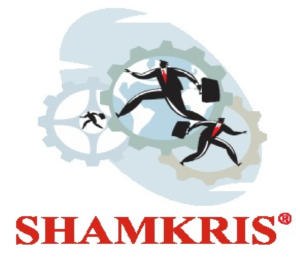Authorized Economic Operator (AEO) License
What is AEO License?
AEO stands for “Authorized Economic Operator.” An AEO license is a certification that is issued by customs authorities in various countries to companies that meet certain security and compliance standards in their supply chain operations. The AEO program is an international initiative developed by the World Customs Organization (WCO) to secure international supply chains and enhance trade facilitation.
Companies that hold an AEO license are considered to be low-risk traders and are given certain benefits and privileges by customs authorities, such as faster clearance times for their goods and a reduced likelihood of physical inspections of their shipments.
To obtain an AEO license, companies must undergo a thorough evaluation of their supply chain security, compliance with customs regulations, financial solvency, and overall reliability. This evaluation process can include a site visit by customs officials to verify the company’s compliance with AEO standards.
The AEO program is voluntary, and companies must apply to their respective customs authorities to be considered for AEO certification. In general, any company that is involved in international trade and meets the criteria for AEO certification can apply for an AEO license. However, the specific eligibility criteria and requirements for AEO certification can vary depending on the country or region. It’s always best to check with the relevant customs authority in your country or region for the specific requirements and regulations for obtaining an AEO license.
For businesses in importing & exporting there are three tiers providing varying levels of benefits:
- AEO T1 – It is verified based on document submission only
- AEO T2 – Along with T1 Compliance, document verification, and onsite verification is also done
- AEO T3 – For AEO T2 owner who has enjoyed the position for 2 years only based on document verification & for AEO (Authorised Economic Operator) T2 holders who have not enjoyed the status or have introduced major business changes, the applicant is subjected to physical verification.
- AEO LO – There is document verification and onsite verification which is done considered for logistics providers, custodians or terminal operators, customs brokers, & warehouse operators there
Check out the Factory License Video
What are the Benefits of an AEO License?
Faster Customs Clearance
AEO-certified companies receive preferential treatment at customs checkpoints. This results in expedited clearance of goods and reduced waiting times, leading to faster and more efficient supply chain operations.
Reduced Inspections
AEO status signifies that the company has met certain security and compliance standards. As a result, customs authorities are more likely to perform fewer physical inspections and document checks, saving time and resources.
Enhanced Security
AEO certification involves rigorous security checks on the company's premises, operations, and personnel. By maintaining higher security standards, AEO holders demonstrate their commitment to safeguarding the international supply chain from security threats and illegal activities.
Global Recognition
The AEO program is recognized internationally, facilitating trade with countries that have mutual recognition agreements (MRAs) in place. This recognition can open up new markets and trade opportunities for AEO-certified companies.
Improved Credibility
AEO certification demonstrates a company's commitment to compliance, financial solvency, and reliable business practices. This can enhance the company's reputation among business partners, customers, and financial institutions.
Cost Savings
Faster customs clearance, reduced inspections, and improved efficiency in the supply chain can lead to cost savings for AEO-certified companies. They may also benefit from potential duty deferral or suspension programs, further reducing financial burdens.
Why AEO License is Required?
The AEO License is required for companies that wish to streamline their supply chain operations and take advantage of the benefits and privileges offered by customs authorities. These benefits can include faster clearance times for their goods, reduced likelihood of physical inspections of their shipments, and improved access to trade facilitation programs.
Who can get AEO License?
Manufacturers
Exporters
Importers
Freight forwarders
Carriers
Logistics service providers
Customs brokers
Warehouse operators
Port operators
Airlines
Shipping lines
Rail operators
Road transport operators
Express couriers
Postal operators
Supply chain security service providers
Document Required for AEO License
Role of Shamkris and Process of AEO License
Shamkris adopts a results-oriented approach to compliance with mandatory licence requirements in the organization. A simple and guidance methodology help organisation to achieve licence in a timely manner and cost-effective. Shamkris support 100% in advisory, Guidance, Compliance with respect to license requirements to obtain approval.
The License process described below:
Advisory for the document required
Preparation of documents as per application & list of documents.
Application File
Inspection by the department if required
Liason department
Yearly Compliance if Applicable
Renewal when due
Who can issue the AEO License?
FAQ
An AEO (Authorised Economic Operator) is a business entity involved in the international movement of goods requiring compliance with provisions of the National Customs law and is approved by or on behalf of the national administration in compliance with World Customs Organization (WCO).

